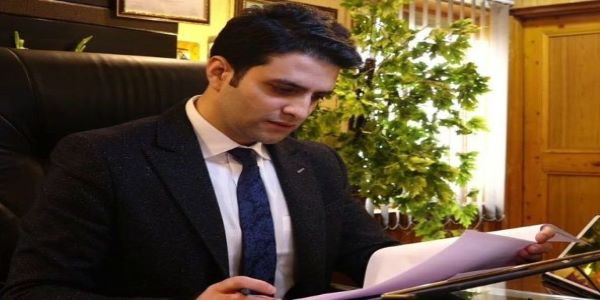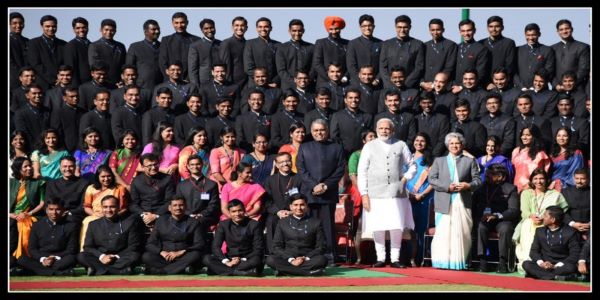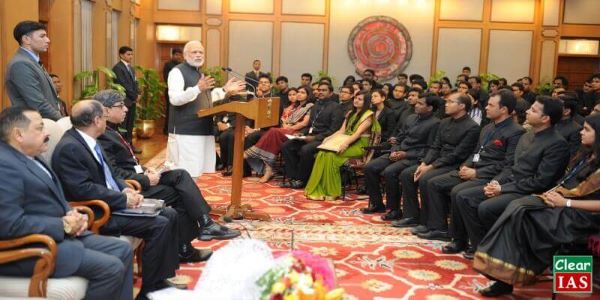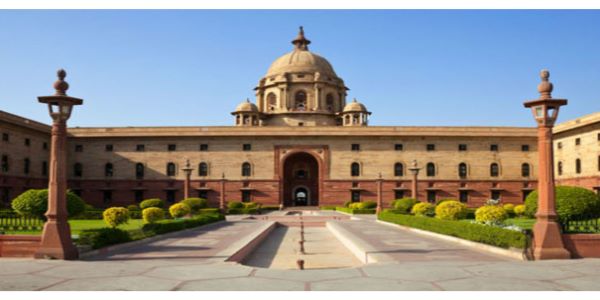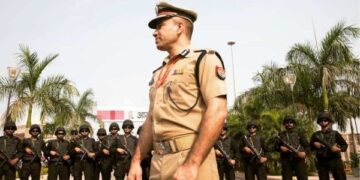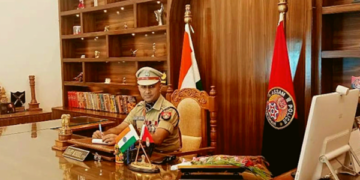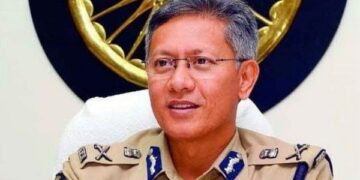We all have watched Bollywood movies at some point in our life. It can be an old movie or a new one. We have come across a very powerful character in some movies. This one person is an IPS/IAS officer. He kicks back everyone. Tries to bring justice. Moreover, he also fights the politicians. He does everything in his power for the good of society. These movies have inspired people over years. But what is the power of an IAS officer? Very few aspirants actually know an answer to this question. However, there is no need to panic. Even if you can or cannot answer this question, we are here to help you. In today’s article, we will discuss an IAS officer’s power. The power of a district collector is widespread. Hence, today we will discuss both the IAS officer power and limitations in India.
IAS Officer Power Before and After Free India
Mostly, people crave power. Some opt for politics. They aim for a seat. Moreover, they try to get the power behind the seat. However, most youngsters do not rely on politics for this power. They opt for civil services and try to bring a change in society. Movies and power have driven people into civil services. Hence, if you are preparing for UPSC CSE, it is imp to know what powers you will hold. Moreover, it is imp to know what job or task you will perform. In this article, we will check if an IAS officer truly has unlimited powers. Or if there are certain restrictions to his powers as well?
Starting with a brief history. A district collector was almost the supreme authority of his district. The administration was introduced in India by the Britishers. Hence, these collectors were mostly British. This district authority played both judicial and executive roles. That is, the officer can punish people for their wrongdoings. However, in free India, this judicial role is played by different courts. Hence, the IAS officer’s power does not include judicial authority. He/She only has executive powers. Earlier, the officers in the British era were a means of exploitation for the poor people. However, free India used this position for the betterment of the country. Hence, many officers are working towards the upliftment and change of society.
What is the power of an IAS officer in India?
After training, an IAS officer’s power depends upon his first task. As such there are three types of duties. Firstly, an IAS officer may get a fieldwork task. That is, the officer has to work at the ground/grass-root level. Secondly, there are State Secretariat/PSU-type jobs. Thirdly, there is a central secretariat duty. Normally, an IAS officer has the power to handle the govt affairs. This includes framing policies. Moreover, you will also implement and review your policies. However, do IAS officer directly makes and implement these policies? The answer is no. They have to consult various depts before making any such policies. Moreover, they also have to consult with their political heads.
For various tasks, an IAS officer may get funds for a particular scheme. The officer makes sure that these funds are rightly allocated for the given purpose. Hence, he manages and distributes such funds. For this, the identifies the right kind of receivers. Further, an IAS officer’s/ District collector’s power is to supervise different policies. That is, you have to check the working of an already working policy. Moreover, you also have to supervise different schemes from the govt. As an IAS officer, you have to respond to crises. These can be in the form of natural/artificial disasters. It can also be a major accident or a riot in your district. These are very general IAS powers in India. Let us now talk about their duty-specific tasks.
Field duty
The first posting is usually on the field. Hence, very soon after your training, you will have to work at the ground level. Thus, it is imp to know about the first task of your career as an IAS officer. You will become a sub-divisional magistrate on your first job. On this duty, you have to check how the law and order are maintained at your sub-division. Moreover, you also have to learn about the admin and managerial functions at this level. After you learn these things, you are promoted to the district magistrate. This post is also called the District Collector. Read about the different exams conducted by UPSC: click here.
Moreover, you can also be a deputy commissioner after your sub-div task. Here, you perform the same tasks as an SDM. However, these are at the district level and not at the sub-div level. Moreover, you also assist and train other SDMs during your post as a DM. Most of the field duties are restricted to these. Hence, an IAS officer’s power as an SDM/DM is pretty challenging. However, you get the best experience and first-hand knowledge at this level.
Other tasks and IAS officer powers and limitations
Apart from fieldwork, an IAS officer’s powers change when his task changes. Once the IAS officer exercises his power of being a district collector, he may get a state secretariat job. Here, you will use your field knowledge to advise your political heads. These are state political heads. Here, you held the elected heads in decision and policymaking. Moreover, you also guide the policy implementation. In addition to this, you can also get a task to head a PSU. Majorly, you work in the upper hierarchy of state PSUs/Central PSUs. Hence, here the tasks are mostly managerial in nature. Thus, the IAS officer’s power in PSUs is of the management type. Further, you can get posted in the Central Secretariat. Reaching this level is considered a great success in an IAS officer’s career. Here, you advise central-level elected heads in policymaking.
IAS officer powers and limitations
Here, we have almost learned the powers of an IAS officer. We also saw the power of a district collector. Moreover, we tried to answer what is the power of an IAS officer during different tasks/duties. Now, let us focus on what are the limitations of an IAS officer’s power. Firstly, IAS belongs to the All India Service. Hence, there are frequent transfers. Thus, there is a rise in cadre problems. If the cadre is not favorable, many career problems may arise. The frequent transfers may hamper the efficiency of a policy in one region. Then, the officers have to move on to the transferred region and restart their process. Another problem arises with their family lives. Usually, IAS bungalows have camp offices.
Hence, the officers are always on duty and they hardly get any time with their families. Moreover, kids of such officers have to change their schools/colleges with every transfer. Another challenge during the discharge of their duties is political influence or control. This ultimately either leads to corruption or a transfer of a non-corrupt officer. Sometimes, an officer may also face supersession which is often frustrating. To avoid all these issues, the UPSC has added a new subject to the CSE curriculum. There is a new paper called GS IV which prepares candidates for the practical challenges of being an IAS officer. Moreover, it also tries to build an ethical background in young minds related to their jobs. Thus, one must take their syllabus quite seriously. This will help you in your practical life ahead. Check the UPSC curriculum here: click now.
FAQs
We saw that an IAS officer’s powers depend upon his or her task. Thus, there are three types of tasks. That is, on the field, in-state secretariats/PSUs, and Central Secretariats. Hence, the highest post in an IAS officer’s career is the cabinet secretary post. This post comes under the central secretariat jobs.
Firstly, you are trained at LBSNAA if you clear all the exam stages. Then, you are attached to the Central Govt. at a nominal position for three months. This is a part of your training. Your first job as an IAS officer can be that of an SDM/Joint Magistrate/Sub Collector.
Usually, an IAS officer retires by the age of 60 years. Hence, on average, an officer serves for around 30 to 35 years in the service.
Editor’s Note | IAS Officer Power
Today’s article was all about an IAS officer’s power/power of the district collector. Firstly, we talked about how the role of a district collector or an IAS officer changed after freedom. Hence, initially, the officers were British and Brutal. But, now they are more open to the new system and have a young and open mind towards society and its policies. After this, we answered what are the powers of an IAS officer in India. Furthermore, we talked about the on-field duties. Then, we also talked about the state and central duties of an IAS officer. Additionally, we talked about the various limitations in an IAS officer’s exercise of duties and personal/professional lives. Thus, we learned of both the benefits and cons of being an IAS officer.

